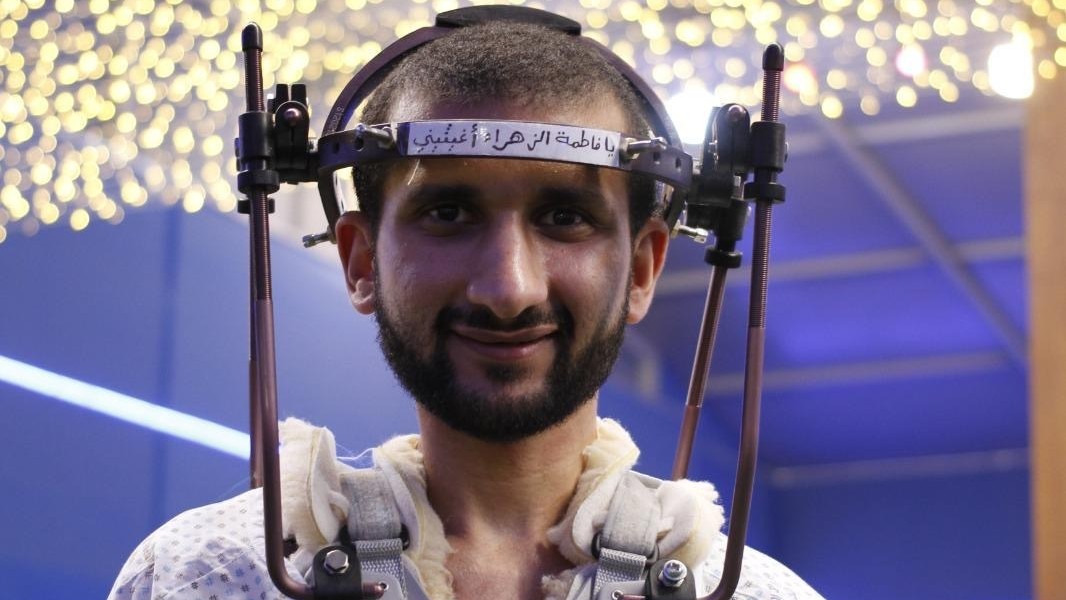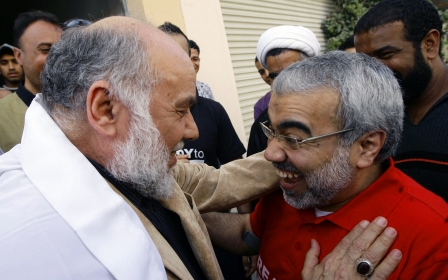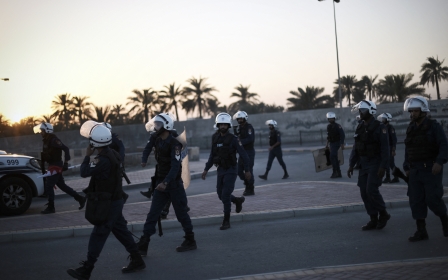Bahrain: Fears of tuberculosis outbreak at prison as detainees fall ill

A Bahraini political prisoner with tuberculosis says he fears he will die soon if authorities withhold further medical care from him, as two other inmates say they have symptoms of the illness but have not been tested or treated.
All three political prisoners were in Jau Prison with a fourth detainee - who was discharged in late February for tuberculosis treatment after months of illness, only after fellow prisoners banged on their cell doors in protest - said the Bahrain Institute for Rights and Democracy (Bird), citing prisoner testimony.
That detainee - Ahmed Jaber - has been forced to wear a device to hold his head and chest in place and prevent his neck from injury after the tuberculosis spread to his bones.
The three remaining prisoners shared a cell with Jaber at various points, raising concerns that there may be a risk of an outbreak of the infectious disease which is known to spread in prisons.
Families with prisoners believed to have been exposed to Jaber are now demanding that their relatives receive examinations, Bird told MEE on Thursday.
New MEE newsletter: Jerusalem Dispatch
Sign up to get the latest insights and analysis on Israel-Palestine, alongside Turkey Unpacked and other MEE newsletters
MEE asked the Bahraini embassy in London whether it was aware of the cases, and if authorities would provide testing and treatment for the prisoners, but it has not responsed.
On Thursday, Bahrain's Ministry of Health confirmed in a statement reported on AlWatan news website that a prisoner has tested positive for tuberculosis and said it would be testing other inmates.
The prisoner, Hassan Abdulla Habib, said in a recording released online on Wednesday that he has two serious blood disorders - sickle cell anaemia and thalassemia - and has struggled to receive adequate care during his eight years in prison.
'Under my circumstances, it's a fast death, not a slow death'
- Hassan Abdulla Habib, political prisoner
After he fell seriously ill last week, he was sent to Salmaniya Hospital where doctors told him he had tuberculosis. There was fluid in his lungs and his testicles, and problems with his colon and spinal cord. One of his lymph nodes was removed.
On Tuesday, he was returned to the general prison population. His current calls for help, he said in the recording, could be his last "as my life is seriously endangered".
"Under my circumstances, it's a fast death, not a slow death. I appeal to everyone to secure my release so I may continue my treatment," Habib said.
Another detainee, Sayed Nizar Alwadaei, who is ill with tuberculosis-like symptoms, was held in solitary confinement for three days this week after he refused to return to his cell unless he was given urgent care, family members told MEE.
His mother, Hajar Mansour, came to the prison on Wednesday to try to secure an examination for him, but was ignored by prison officials and then threatened with arrest, tweeted Sayed Ahmed Alwadaei, his brother-in-law and the advocacy director of Bird.
The family of a third political prisoner, Mortada Mohmed Abdel-Reza, who is also sick with similar symptoms, has demanded that he receive an examination and immediate treatment.
"Bahraini authorities are acting with gross negligence in the face of confirmed tuberculosis infections at Jau Prison," Amnesty Bahrain tweeted on Thursday. "Such indifference to prisoners' medical needs is both cruel and senseless."
Amnesty International has previously documented medical neglect across Bahrain's prisons, saying in a 2018 report that the system was "marred by regular instances of negligence, delay, and arbitrary exercise of authority which in specific cases rise to the level of intentional ill-treatment".
Middle East Eye delivers independent and unrivalled coverage and analysis of the Middle East, North Africa and beyond. To learn more about republishing this content and the associated fees, please fill out this form. More about MEE can be found here.





